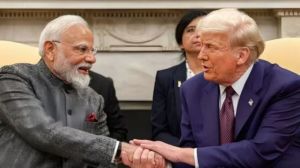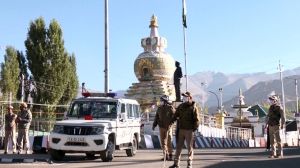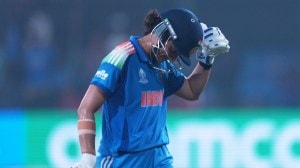Islamic world’s liberal face to grace R-Day parade
New Delhi, January 23: Algerian President Abdul Aziz Boutifilka, who arrives here tomorrow on a six-day state visit, will be the first Ara...

New Delhi, January 23: Algerian President Abdul Aziz Boutifilka, who arrives here tomorrow on a six-day state visit, will be the first Arab head of state to be the chief guest at a Republic Day ceremony. It is significant that Boutifilka represents the only member state in the Organisation of Islamic Countries (OIC) to have posted “written reservations” on the status of Jammu and Kashmir. In other words, it sees it as a part of India.
Inviting Boutifilka to the first R-Day parade of the new millennium, therefore, sends clear signals to Pakistan because Algeria mirrors India’s concerns with regard to terrorism. Like India, Algeria, in fact, has made its relations with Pakistan preconditional to that country curbing export of terrorism. In their assessment, Pakistan has not done enough on that count, in extraditing Algerian-Afghans waging jehad against the African Arab nation.
One reason why Boutefilka, who will hold discussions with President K R Narayanan and Prime Minister Atal Behari Vajpayee, supports India with reference to Pakistan is because Algeria, too, considers itself a victim of Islamic terrorism.
Between 1992 and 1997, after the withdrawal of Soviet troops from Afghanistan, Algeria suffered 100,000 deaths and over 1 million people displaced internally, as well as losses worth $20 billion — the size of Algeria’s entire foreign debt. All due to a bloody history of fundamentalist movements such as the Islamic Salvation Front (FIS) which comprised Afghan mercenaries who turned their guns on the northern African state after the Red Army departed.
Algeria’s current position is unique in the world because it has enshrined democracy in a predominantly Islamic state after combatting fundamentalist forces. In November 1995, President Liamine Zeroual was elected in the first open, multi-candidate elections in Algeria after the assassination of Mohammed Boudiaff in June 1992.
On December 7, 1996, President Liamine Zeroual signed new constitutional reforms which, among other things, banned political parties that were formed on the basis of religion or language. On April 15, 1999, Algeria held democratic presidential elections which were won by Abdul Aziz Bouteflika.
Apart from politics, trade with this OPEC member nation is another important area of cooperation. During the presidential visit, the two countries are expected to conclude a memorandum of understanding to enable ONGC Videsh to start exploration and production of oil in Block 242 in collaboration with Sonatrach of Algeria. This, along with the deal with Iraq, could mean oil worth a billion dollars flowing in and through India.
Negotiations are also in an advanced stage to finalise a deal by Lakshmi Mittal — who was in Algiers in November 2000 — for Ispat International to take over Algeria’s only steel plant.





- 01
- 02
- 03
- 04
- 05


























